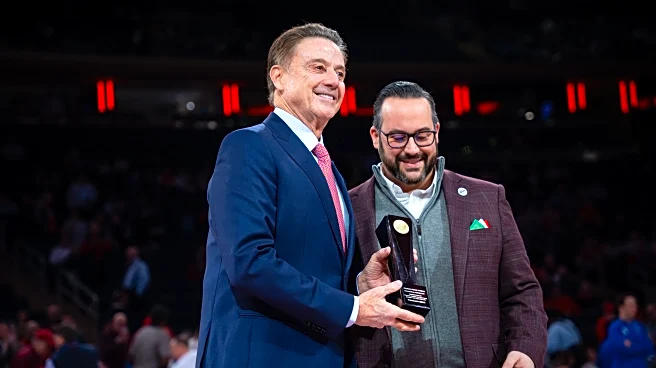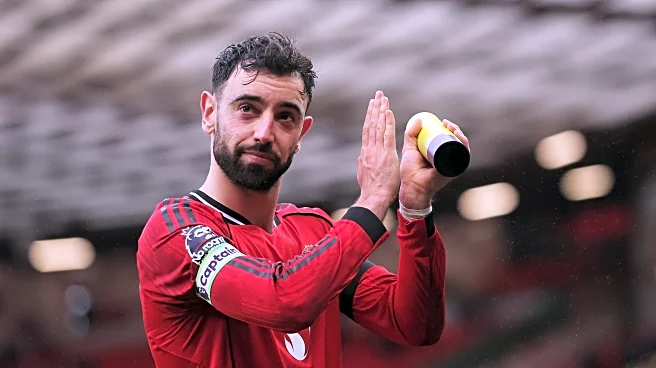What's Happening?
The Oklahoma City Thunder, reigning NBA champions, have announced their 2025-26 regular season schedule, which includes a comprehensive national television and streaming setup. The NBA has renewed its partnership with Disney and established new agreements with NBCUniversal and Amazon, ensuring that Thunder games will be accessible on various platforms such as ESPN, NBC/Peacock, Prime Video, and ABC. The season kicks off on October 21 with the Thunder hosting the Houston Rockets, marking the team's championship ring and banner ceremony. Key matchups include a Finals rematch against Indiana on October 23 and a Christmas Day game against the San Antonio Spurs. The Thunder will also participate in the Emirates NBA Cup group stage, with knockout rounds scheduled for December.
Why It's Important?
The expanded streaming options for the Thunder's games reflect a significant shift in how sports content is consumed, catering to the growing demand for digital access. This development is crucial for fans who prefer streaming over traditional cable, offering more flexibility and accessibility. The partnerships with major streaming platforms like Prime Video and Peacock indicate a broader trend in sports broadcasting, potentially influencing other leagues and teams to adopt similar strategies. This move could also impact advertising and sponsorship opportunities, as streaming platforms provide different audience engagement metrics compared to traditional TV broadcasts.
What's Next?
As the season progresses, fans can expect a seamless integration of streaming services with traditional broadcasts, enhancing the viewing experience. The NBA's new digital feature will guide fans to live game streams, potentially increasing engagement and viewership. The Thunder's participation in the Emirates NBA Cup and the SoFi NBA Play-In Tournament will add competitive excitement, with results influencing regular-season game assignments. Stakeholders, including broadcasters and advertisers, will likely monitor the impact of these changes on audience reach and engagement, potentially leading to further innovations in sports broadcasting.
Beyond the Headlines
The shift towards streaming could have long-term implications for the sports industry, including changes in revenue models and audience demographics. As younger viewers increasingly favor digital platforms, traditional broadcasters may need to adapt to maintain relevance. This transition also raises questions about data privacy and the use of viewer analytics, as streaming services collect detailed user information. Additionally, the integration of streaming could influence how sports rights are negotiated, with digital platforms potentially playing a more significant role in future deals.












